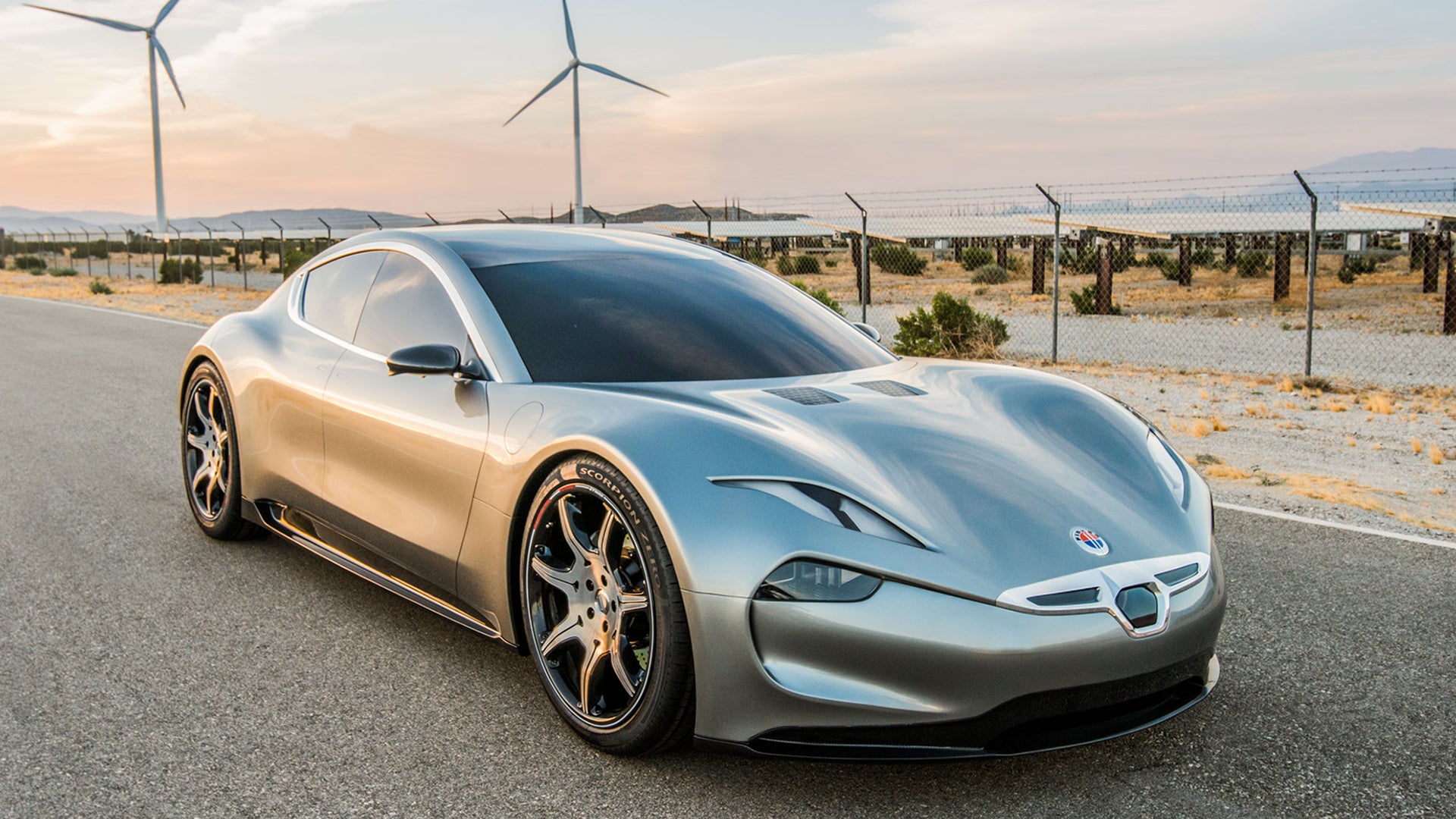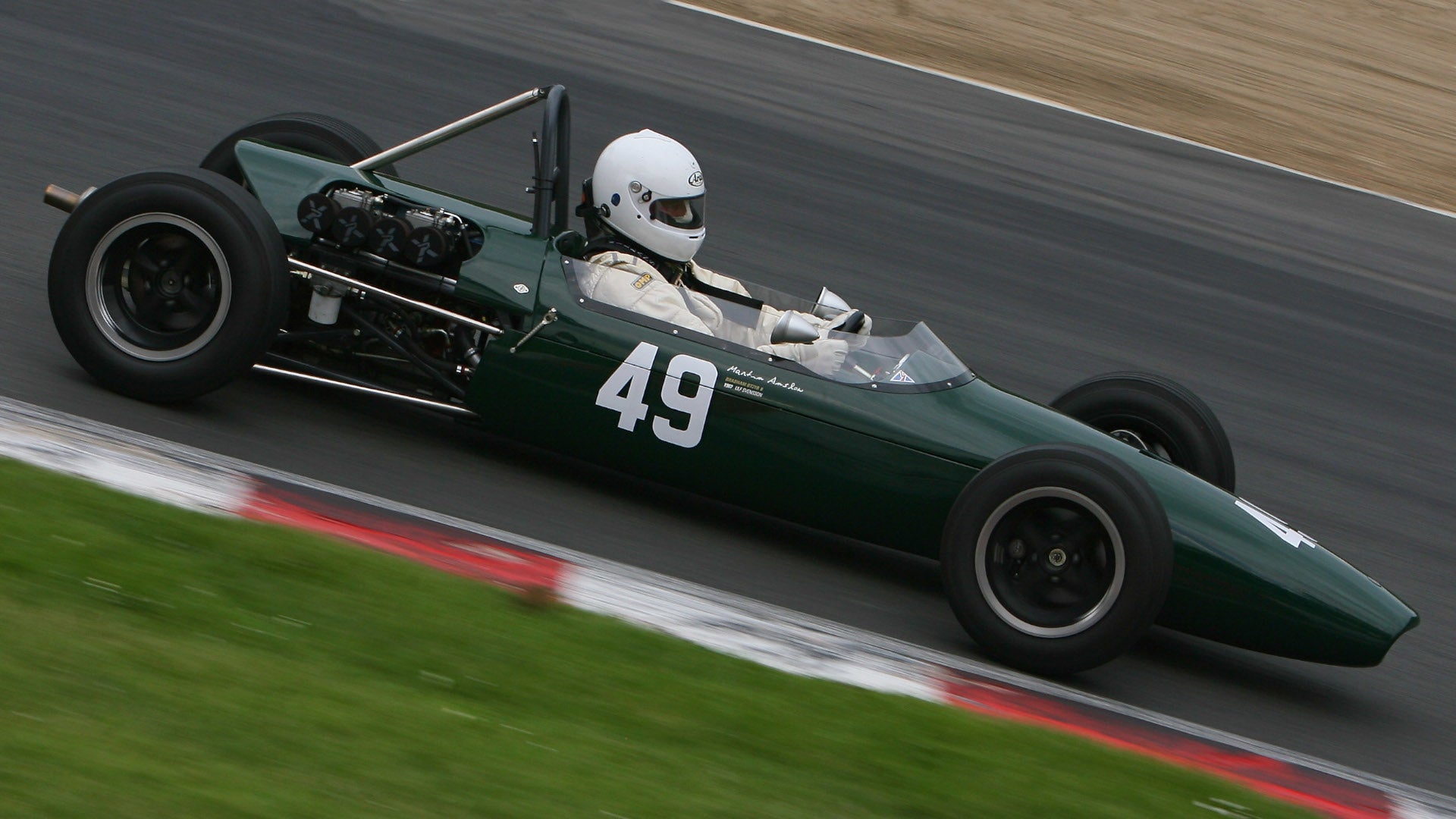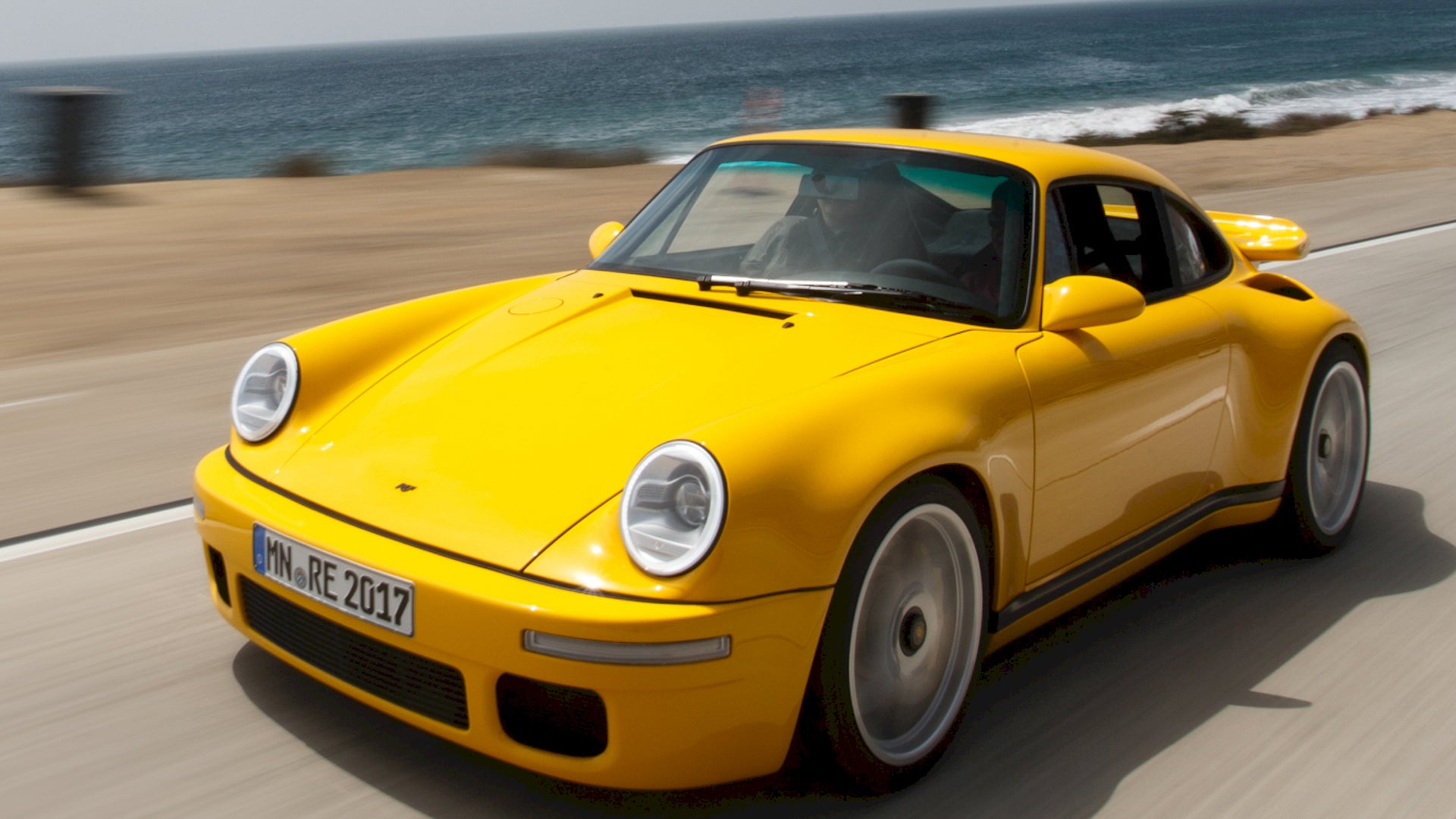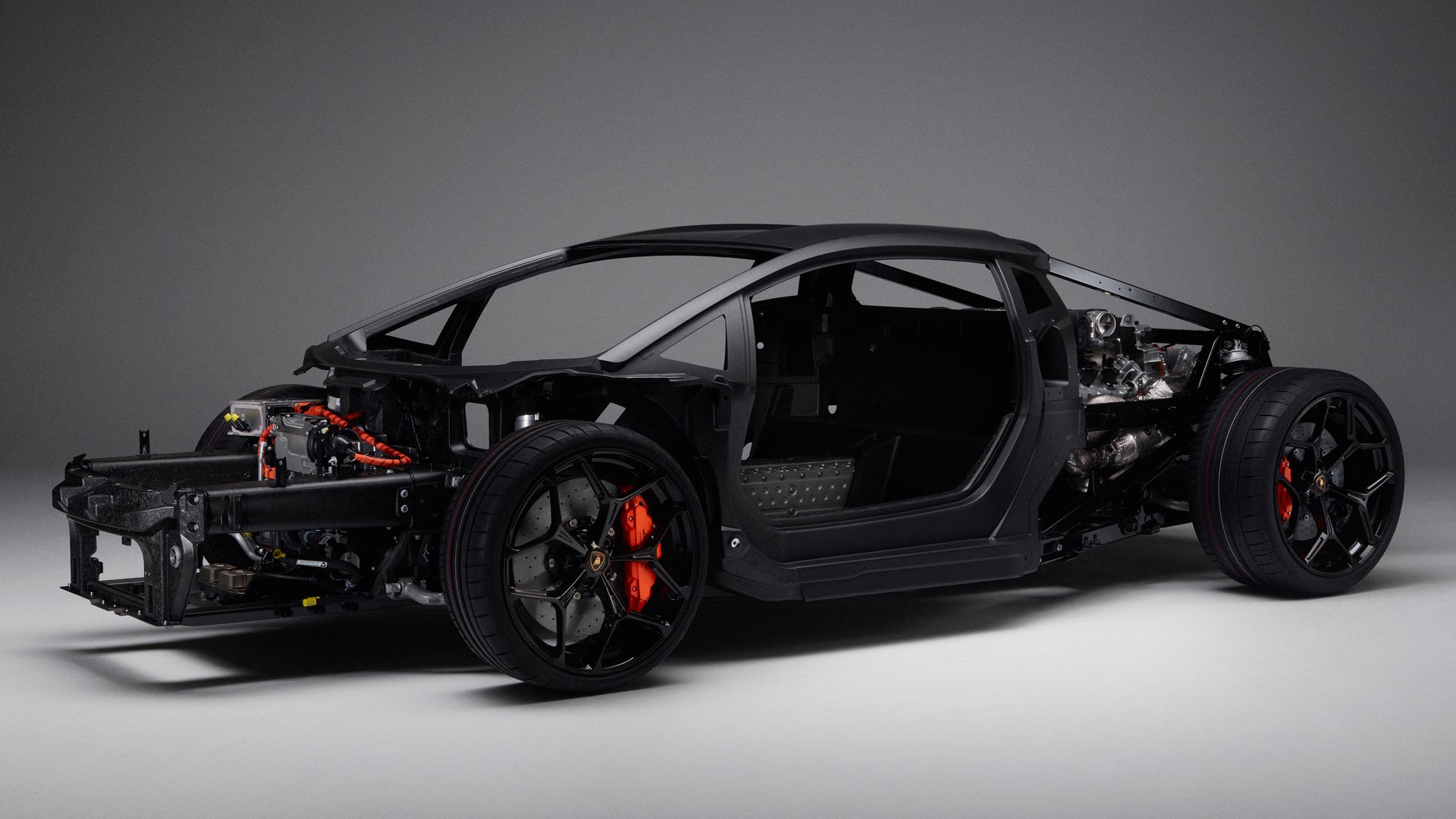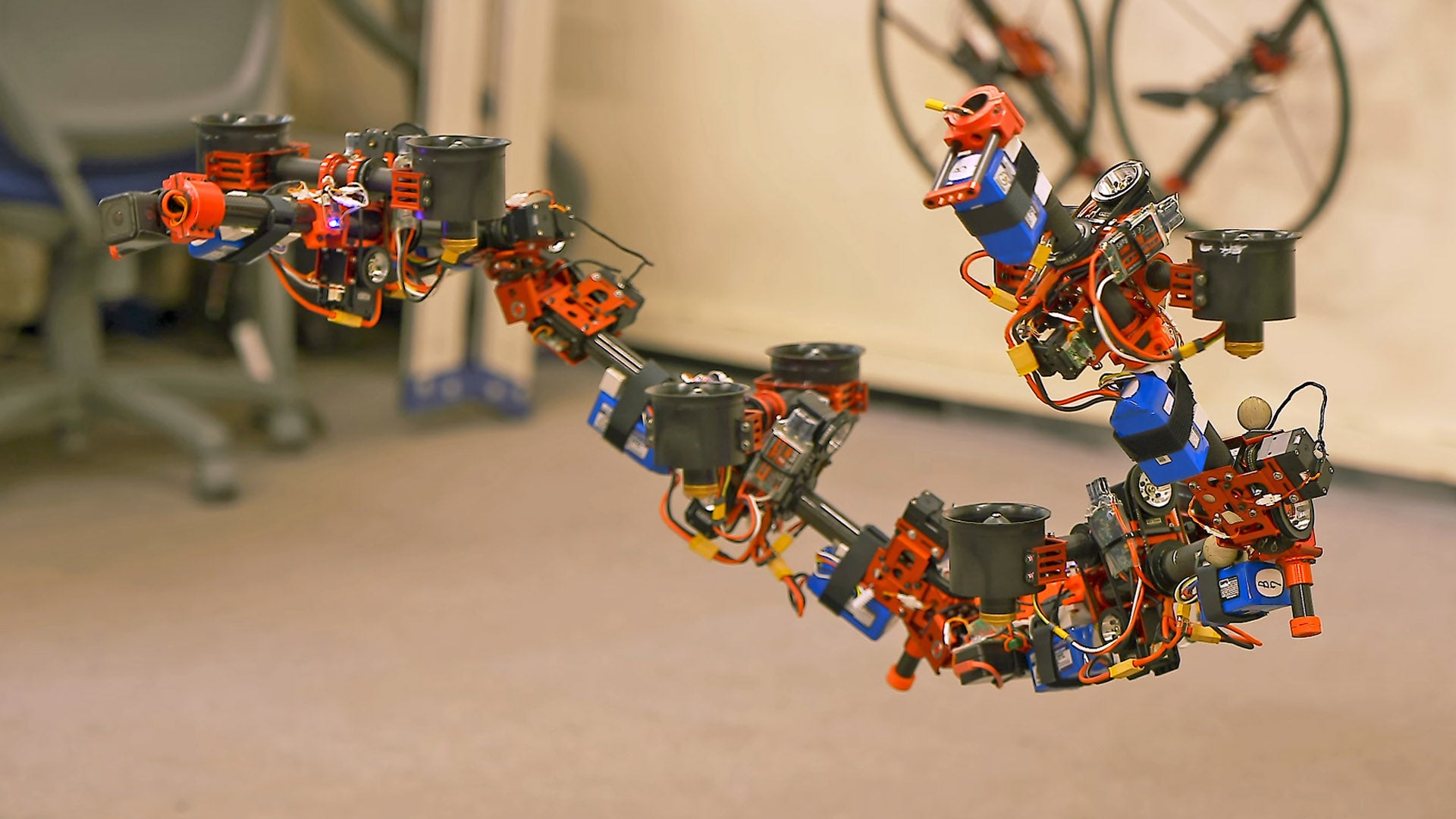The future could be here before we know it. On Monday, Fisker Inc.—the company behind the Tesla Model S-fighting EMotion picture above—announced that it had filed patents for a new type of battery technology that could put electric cars with 500-plus mile ranges and one-minute recharging times on the roads as soon as the year 2024.
While Fisker's press release was, unsurprisingly, a tad cagey about the details of this potentially paradigm-shattering technology, the company did reveal a few bits about what its new inventions and discoveries could do. Fisker's new power storage technology, according to the company, would allow it to build solid-state batteries packing far more surface area than existing flat thin-film solid-state electrodes can do, while also allowing for greater conductivity, allowing the batteries to work better in cold weather and charge faster overall. (Low levels of conductivity has been one of the key problems preventing the widespread adoption of solid-state batteries so far, so this could potentially be, as Michael Scott might say, a B.F.D.)
Due to the complexities of bringing the new technology to market, such as developing supply chains for some raw materials and setting up property quality control measures for them, Fisker says the technology isn't likely to reach cars and trucks until sometime after 2023. Once it does, however, the company claims the batteries—2.5 times more power-dense than their lithium ion equivalents—could lead to electric vehicles capable of recharging in less time than it takes to fill a modern car's gas tank, then driving more than 500 miles before needing to power up again. Oh, and the carmaker says the batteries would cost about one-third as much as li-ion ones, to boot. (That said, Fisker did mention that there are still plenty of "technical bottlenecks" between where the tech is now and where it needs to be for production use, so don't get too excited just yet.)
Of course, as with any new technology, the burden of proof is on Fisker to show that it can deliver on its lofty claims. (The company previously claimed it would offer an advanced battery in the EMotion, for example, but was forced to abandon that after it and supplier Nanotech parted ways earlier this year.) And with numerous automotive and technological giants like Toyota also hard at work on solid-state batteries, it remains to be seen if this small carmaker can claim an unconquerable lead in the field. But for whomever manages to get working solid-state batteries into cars first...well, odds are good they probably won't have to worry about their kids' college funds.
